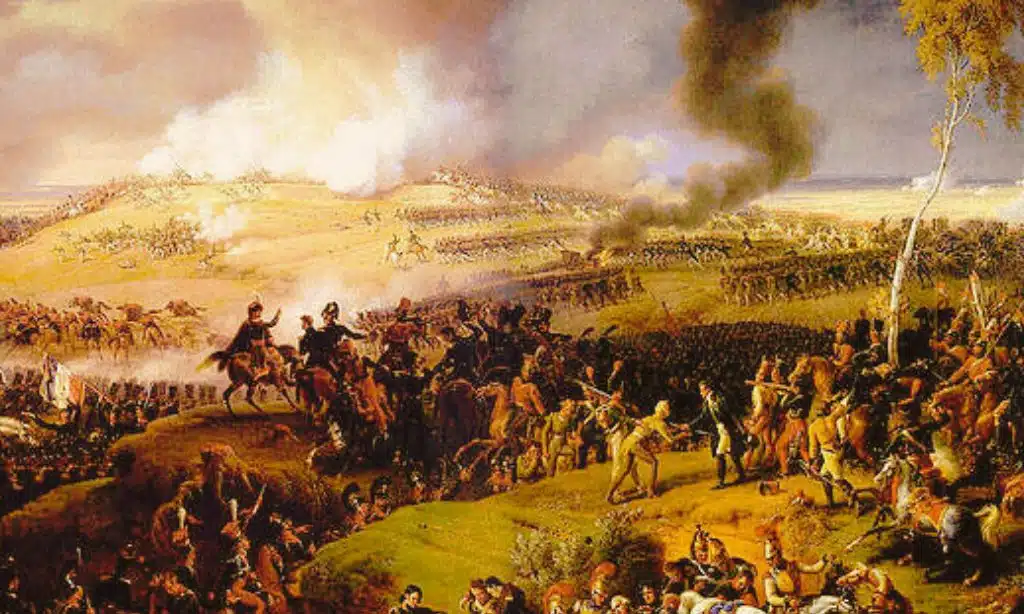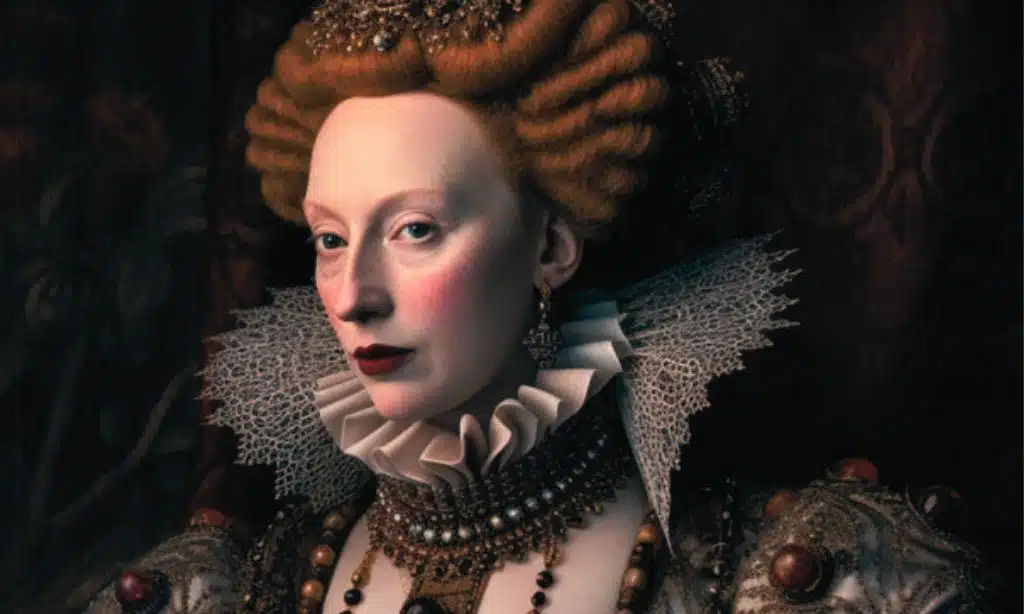September 7 is a day full of important events and birthdays. From big battles to car races and famous queens to rock stars, this day has seen it all. Let’s explore what makes September 7 special in history.
Historical Events on September 7
The Guelders Wars (1543)
On September 7, 1543, a big war called the Guelders Wars came to an end. William, the Duke of Jülich-Cleves-Berg, gave up to Emperor Charles V. This war was about who would control the Duchy of Guelders, a place in what is now the Netherlands and Germany.
William had been fighting Charles V for control of Guelders. But Charles V was very strong. He had a big army and lots of money. William couldn’t keep fighting anymore. When he gave up, it meant Charles V won the war.
This was important because it made Charles V even more powerful. He now controlled more land in Europe. It also showed how strong the Holy Roman Empire was at that time. The Holy Roman Empire was a group of lands in Europe that were ruled by one emperor.
The Battle of Borodino (1812)
The Battle of Borodino happened on September 7, 1812. It was one of the biggest and bloodiest battles in the Napoleonic Wars. These wars were fought between France, led by Napoleon Bonaparte, and many other European countries.
Napoleon had invaded Russia with a huge army. The Russians, led by General Mikhail Kutuzov, were trying to stop him. The two armies met near the village of Borodino, not far from Moscow.
The battle was very fierce. Both sides fought hard all day. In the end, Napoleon’s army won, but it was a “pyrrhic victory”. This means that even though Napoleon won, his army lost so many soldiers that the win wasn’t really worth it.
About 70,000 soldiers died in this one-day battle. It was the bloodiest single day of battle in the Napoleonic Wars. Even though Napoleon won, his army was badly hurt. This battle was a turning point in Napoleon’s invasion of Russia. After this, things started to go very badly for the French army.
Alberto Ascari’s Victory (1952)
On September 7, 1952, Alberto Ascari of Italy won the Formula 1 World Drivers Championship. He did this by winning the last race of the season, the Italian Grand Prix at Monza.
Ascari was driving a Ferrari car. He had a great season, winning six out of the eight races. He beat Giuseppe Farina, another Italian driver, by 12 points to win the championship.
This was a big deal for Italian motorsport. Ascari was the first Ferrari driver to win the World Championship. It showed that Ferrari was becoming a top team in Formula 1 racing.
Jackie Stewart’s First Championship (1969)
On September 7, 1969, Jackie Stewart from Scotland won his first Formula 1 World Drivers Championship. He did this by winning the Italian Grand Prix at Monza.
Stewart was driving a Matra-Ford car. This was his sixth win of the season. It was enough to make sure he won the championship, even though there were still three races left in the season.
This was the start of Stewart becoming one of the greatest Formula 1 drivers ever. He went on to win two more championships. He also became known for his work to make racing safer for drivers.
Hockey Hall of Fame Inductions (1988)
On September 7, 1988, three great ice hockey players were added to the NHL Hall of Fame. They were Guy Lafleur, Tony Esposito, and Brad Park.
Guy Lafleur was a forward who played mostly for the Montreal Canadiens. He was known for his fast skating and scoring lots of goals. Tony Esposito was a goalie who played most of his career with the Chicago Black Hawks. He was very good at stopping the other team from scoring. Brad Park was a defenseman who played for the New York Rangers and Boston Bruins. He was known for being very good at both defense and offense.
These three players were some of the best in ice hockey history. By adding them to the Hall of Fame, the NHL was honoring their great careers and the impact they had on the sport.
Famous Birthdays on September 7
Elizabeth I (1533-1603)
Elizabeth I was born on September 7, 1533. She became Queen of England and Ireland in 1558 and ruled until she died in 1603. She was the daughter of King Henry VIII and his second wife, Anne Boleyn.
Elizabeth’s rule is often called the “Golden Age” of English history. During her time as queen, England became very powerful. The country beat the Spanish Armada, a big fleet of ships that tried to invade England. Elizabeth also supported the arts, and famous writers like William Shakespeare created their works during her reign.
Elizabeth never married or had children. This caused some problems about who would rule after her. But she was a strong ruler who made England a major power in Europe.
Here’s a brief biography of Elizabeth I:
| Category | Information |
|---|---|
| Born | September 7, 1533 |
| Died | March 24, 1603 |
| Birthplace | Greenwich, England |
| Parents | Henry VIII and Anne Boleyn |
| Reign | 1558-1603 |
| Known for | Defeating the Spanish Armada, supporting the arts, being the “Virgin Queen” |
Henry Campbell-Bannerman (1836-1908)
Henry Campbell-Bannerman was born on September 7, 1836. He became the Prime Minister of the United Kingdom in 1905 and served until 1908.
Campbell-Bannerman was a member of the Liberal Party. Before becoming Prime Minister, he had several important jobs in the government. As Prime Minister, he worked on making the country more fair for everyone. He helped pass laws to give workers more rights and to provide free school meals for poor children.
Even though he was only Prime Minister for a short time, Campbell-Bannerman made important changes that helped make Britain more modern and fair.
Here’s a brief biography of Henry Campbell-Bannerman:
| Category | Information |
|---|---|
| Born | September 7, 1836 |
| Died | April 22, 1908 |
| Birthplace | Glasgow, Scotland |
| Political Party | Liberal Party |
| Prime Minister | 1905-1908 |
| Known for | Social reforms, supporting Irish Home Rule |
Paul Brown (1908-1991)
Paul Brown was born on September 7, 1908. He was a very important American football coach. He coached the Cleveland Browns and later started the Cincinnati Bengals team.
Brown was known for being very smart about football. He came up with new ways to coach and play the game. He was one of the first coaches to use film to study other teams. He also invented the face mask for football helmets.
Brown won many championships as a coach. He helped make professional football more popular in America. Many people think he was one of the best and most important coaches in NFL history.
Here’s a brief biography of Paul Brown:
| Category | Information |
|---|---|
| Born | September 7, 1908 |
| Died | August 5, 1991 |
| Birthplace | Norwalk, Ohio, USA |
| Teams Coached | Cleveland Browns, Cincinnati Bengals |
| Championships | 7 (4 AAFC, 3 NFL) |
| Known for | Innovating football strategy, founding the Bengals |
Louise Suggs (1923-2015)
Louise Suggs was born on September 7, 1923. She was one of the best women golfers ever and helped start the Ladies Professional Golf Association (LPGA).
Suggs won 61 professional tournaments in her career. This included 11 major championships. She won the U.S. Women’s Open in 1949 and 1952. Suggs was known for her very good golf swing and her competitive spirit.
In 1950, Suggs was one of the 13 women who started the LPGA. This organization helped make women’s professional golf more popular and gave women more chances to play golf as a job.
Here’s a brief biography of Louise Suggs:
| Category | Information |
|---|---|
| Born | September 7, 1923 |
| Died | August 7, 2015 |
| Birthplace | Atlanta, Georgia, USA |
| Major Wins | 11 |
| LPGA Tour Wins | 61 |
| Known for | Co-founding the LPGA, excellent golf swing |
Buddy Holly (1936-1959)
Buddy Holly was born on September 7, 1936. He was an American rock and roll singer and songwriter. Even though his career was short, he had a big impact on rock music.
Holly wrote and performed many hit songs. Some of his most famous ones are “Peggy Sue,” “That’ll Be the Day,” and “Words of Love.” He had a unique singing style and was one of the first rock musicians to write his own songs.
Sadly, Holly died in a plane crash in 1959 when he was only 22 years old. But his music continued to be popular and influence other musicians. Many famous bands, like The Beatles, were inspired by Buddy Holly’s music.
Here’s a brief biography of Buddy Holly:
| Category | Information |
|---|---|
| Born | September 7, 1936 |
| Died | February 3, 1959 |
| Birthplace | Lubbock, Texas, USA |
| Genres | Rock and roll, rockabilly |
| Famous Songs | “Peggy Sue,” “That’ll Be the Day,” “Words of Love” |
| Known for | Pioneering rock and roll, influencing later musicians |
Takeaway
September 7 is a day that has seen many important events and the births of influential people. From the end of the Guelders Wars to famous Formula 1 victories, this day has been important in European history and sports. It’s also the birthday of great leaders like Elizabeth I, talented athletes like Louise Suggs, and music legends like Buddy Holly. Each of these events and people has left a mark on history in their own way. Whether in politics, sports, or music, September 7 has been a day of significant happenings that have helped shape our world.
References:
- Gelderland, P. (2018). The Guelders Wars: A Conflict That Shaped the Low Countries. Dutch Historical Review.
- Zamoyski, A. (2004). Moscow 1812: Napoleon’s Fatal March. HarperCollins.
- Rendall, I. (1993). The Chequered Flag: 100 Years of Motor Racing. Weidenfeld & Nicolson.
- Lotz, J. (2001). The Ice Kings: A History of the NHL. Doubleday Canada.
- Weir, A. (1998). The Life of Elizabeth I. Ballantine Books.
- Wilson, J. (1973). CB: A Life of Henry Campbell-Bannerman. Constable.
- Cantor, G. (2008). Paul Brown: The Man Who Invented Modern Football. Triumph Books.
- Suggs, L. (2014). And That’s That!: The Life of Louise Suggs. Tate Publishing.
- Norman, P. (1996). Rave On: The Biography of Buddy Holly. Simon & Schuster.






































